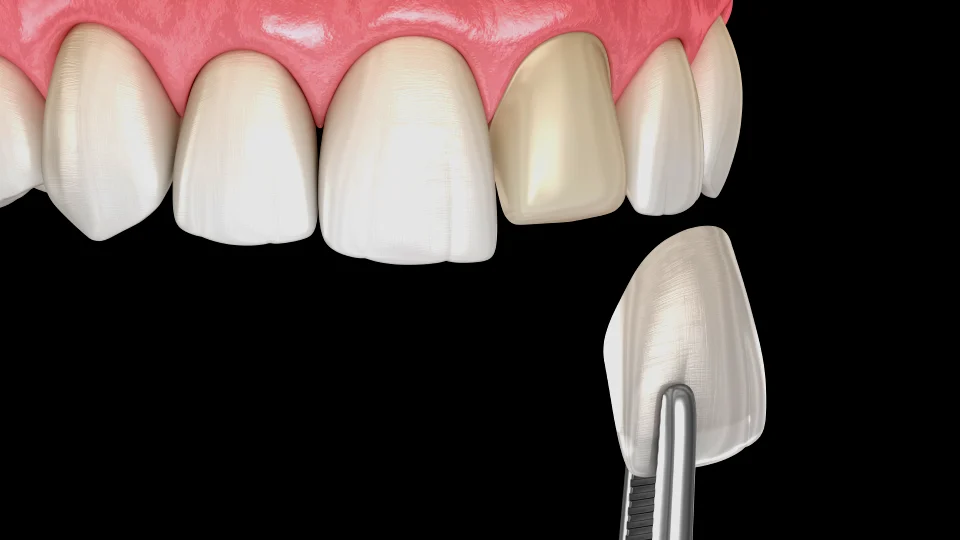What are dental veneers?
Dental veneers are thin shells designed to cover the visible surface of the teeth to enhance their aesthetic appearance. They are used to correct imperfections such as chipped, stained, misaligned, or slightly spaced teeth. Each veneer is custom-made for the patient and permanently bonded to the tooth surface, providing a more attractive and uniform smile.
What are the types of dental veneers ?
There are mainly two types of dental veneers: composite veneers and porcelain veneers.

1. Composite veneers:
- Made from composite resin, the same material used for white dental fillings.
- Composite veneers are generally made directly on the patient's teeth by the dentist.
- The process involves layering and sculpting composite resin on the surface of the teeth to create the desired aesthetic appearance.
- Composite veneers are less expensive than porcelain veneers, but they tend to be less durable and less resistant to stains and discoloration.
2. Porcelain veneers :
- Made from high-quality ceramic, porcelain veneers are thin, custom-made shells that are fabricated in a dental laboratory.
- Porcelain veneers offer a more natural appearance and translucency similar to natural tooth enamel.
- They are more resistant to stains and discoloration than composite veneers and have greater durability.
- The process of placing porcelain veneers usually involves two dental visits: a first visit to take impressions and prepare the teeth, and a second visit to bond the veneers in place.
- Although porcelain veneers are more expensive than composite veneers, they provide more durable and higher-quality aesthetic results.
What is the longevity of dental veneers?
It varies depending on the type of material used (composite or porcelain).
In general, porcelain veneers tend to be more durable than composite ones and can last between 10 and 15 years, or even longer, with proper maintenance. Composite veneers usually have a slightly shorter lifespan, typically between 5 and 7 years, but they can also last longer with appropriate dental care.
However, it is important to note that the longevity of dental veneers can vary from patient to patient, and regular dental visits for check-ups and maintenance are essential to extend their lifespan.

